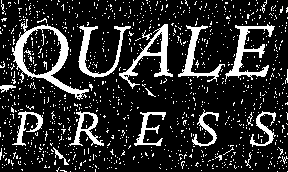|
Born in Italy in 1884, Arturo Giovannitti emigrated to the United States at the age of 20. After a short stint at Columbia University, he became heavily involved with several Italian-language socialist publications, including La Plebe, La rivista rossa (which he founded) and later became the editor of Il Proletario. He was once arrested for his involvement in the Bread and Roses strike in Lawrence, Massachusetts. Giovannitti published throughout his life in both Italian and English, from poetry to articles and even plays. He died in the Bronx in 1959.
A Chronology of Arturo Giovannitti’s Life
1884 – Born on January 7, in Ripabottoni, a small hilltown in the province of Molise in Italy.
1900 – Completes liceo (high school) and emigrates to Canada, where he studies in a Protestant seminary associated with McGill University in Montréal.
1904 – Emigrates to the United States, settling in New York City, where he studies briefly at Columbia University.
1906 – Collaborates with Carlo Tresca on the socialist journal, La plebe, and begins renouncing his early religious beliefs.
1908 – Joins the Federazione Socialista Italiana (Italian Socialist Federation). His first poem (in Italian) appears in print in the May Day edition of Il proletario, the Italian-language newspaper of the Industrial Workers of the World (IWW).
1909 – Moving from being a reformist socialist to revolutionary syndicalism, he starts an Italian-language radical journal, La rivista rossa. He still participates as a member of Il proletario’s editorial committee.
1911 – Assumes editorship of Il proletario. Begins writing in English — his first article, against Italy’s designs on Libya, was published in the International Socialist Review.
1912 – Along with IWW organizer Joseph Ettor, he travels to Lawrence, Massachusetts, to help striking textile workers. Anna LoPizzo, a striker, was killed in a violent confrontation with the state militia. Even though Ettor and Giovannitti were miles away when the shooting occurred, they were arrested for inciting to murder, in part because the state authorities targeted them because they were active and effective in organizing the workers. While awaiting trial, Giovannitti writes “The Walker.” Both are eventually found innocent by a jury.
1913 – Steps down as editor of Il proletario but continues to write for the newspaper. Participates in the failed Paterson, New Jersey, silk strike. Writes regularly in English, especially for The Masses.
1914 – Translates Emile Pouget’s Sabotage into English for the IWW, and translates Leopold Kampf’s drama On the Eve into English. His first book of English poems, Arrows in the Gale, is published with an introduction by Helen Keller. Establishes Il fuoco, an anti-war journal.
1915 – Il fuoco ceases publishing and Giovannitti starts another journal, Vita.
1916 – His drama Tenebre rosse is staged — one of many plays he wrote during his life. Both his brothers fought and died during World War I, serving in the Italian Army.
1923 – Organized the Anti-Fascist Association of North America and became its secretary-general.
1924-1925 – Edited the Italian-language journal, Il veltro. In 1925, Giovannitti reunites with Joseph Ettor to lobby for the release of Sacco and Vanzetti.
1930s – Gradually stopped writing for the American press and centered on his leftist activities. His heavy drinking starts affecting his health.
1938 – Publication of Parole e sangue, a book of his Italian-language poems.
1940s/50s – Giovannitti’s health continues to decline. He eventually ceases all writing and political activity.
1957 – Quando canto il gallo, a collection of his Italian-language poems is published in Chicago.
1959 – Dies in the Bronx on January 31. He was separated from his wife Carrie and survived by a son, Len, and two daughters, Roma and Vera.
|
